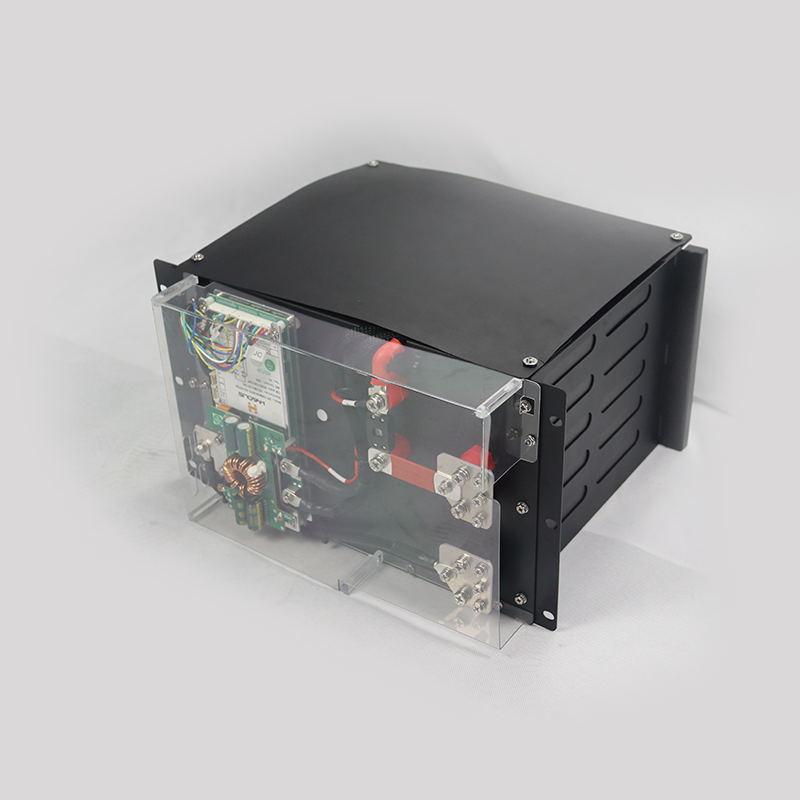Understanding Marine Lithium Battery Packs: A Comprehensive Guide for Professionals
Marine lithium battery packs are increasingly becoming the preferred choice for powering various marine vessels due to their numerous advantages over traditional lead-acid batteries. These advanced battery systems leverage lithium-ion technology, which offers higher energy density, lighter weight, and longer cycle life, making them particularly well-suited for demanding marine environments.
One of
2025-11-07

Marine lithium battery packs are increasingly becoming the preferred choice for powering various marine vessels due to their numerous advantages over traditional lead-acid batteries. These advanced battery systems leverage lithium-ion technology, which offers higher energy density, lighter weight, and longer cycle life, making them particularly well-suited for demanding marine environments.
One of the primary benefits of marine lithium battery packs is their ability to provide a consistent power output. Unlike lead-acid batteries, which can experience voltage sag under heavy loads, lithium batteries maintain stable voltage levels, ensuring that critical systems on a boat, such as navigation, communication, and lighting, operate efficiently. This reliability is crucial for both safety and performance while out on the water.
Another significant advantage of marine lithium battery packs is their rapid charging capability. Unlike traditional batteries that can take hours to charge, lithium batteries can often be charged to 80% capacity in under an hour, depending on the charger used. This feature is especially beneficial for marine applications where time is of the essence, allowing boaters to maximize their time on the water.
When considering marine lithium battery packs, it's essential to address their inherent safety features. Most lithium battery systems come equipped with a Battery Management System (BMS) that monitors charging and discharging, ensuring the cells operate within safe parameters. This system helps prevent overcharging, overheating, and deep discharging, significantly enhancing the lifespan of the battery pack while protecting against potential hazards.
However, it's important to note that marine lithium battery packs may require specific charging equipment and may not be directly interchangeable with lead-acid batteries. Therefore, thorough research and understanding of the particular requirements of these battery systems are crucial for seamless integration into existing marine power setups.
In addition to technical aspects, sustainability is a growing consideration in the selection of marine battery systems. Lithium batteries generally have a lower environmental impact over their lifecycle compared to lead-acid batteries, particularly in terms of recycling and disposal. This aspect aligns with the increasing emphasis on eco-friendly practices within the marine industry.
In conclusion, marine lithium battery packs represent a significant advancement in powering marine vessels, offering a combination of efficiency, reliability, and sustainability. Professionals in the electrical and electronics sector should consider these innovative solutions as they navigate the evolving landscape of marine energy storage and management. Understanding the technology and benefits of marine lithium battery packs is essential for making informed decisions that enhance performance and safety on the water.
One of the primary benefits of marine lithium battery packs is their ability to provide a consistent power output. Unlike lead-acid batteries, which can experience voltage sag under heavy loads, lithium batteries maintain stable voltage levels, ensuring that critical systems on a boat, such as navigation, communication, and lighting, operate efficiently. This reliability is crucial for both safety and performance while out on the water.
Another significant advantage of marine lithium battery packs is their rapid charging capability. Unlike traditional batteries that can take hours to charge, lithium batteries can often be charged to 80% capacity in under an hour, depending on the charger used. This feature is especially beneficial for marine applications where time is of the essence, allowing boaters to maximize their time on the water.
When considering marine lithium battery packs, it's essential to address their inherent safety features. Most lithium battery systems come equipped with a Battery Management System (BMS) that monitors charging and discharging, ensuring the cells operate within safe parameters. This system helps prevent overcharging, overheating, and deep discharging, significantly enhancing the lifespan of the battery pack while protecting against potential hazards.
However, it's important to note that marine lithium battery packs may require specific charging equipment and may not be directly interchangeable with lead-acid batteries. Therefore, thorough research and understanding of the particular requirements of these battery systems are crucial for seamless integration into existing marine power setups.
In addition to technical aspects, sustainability is a growing consideration in the selection of marine battery systems. Lithium batteries generally have a lower environmental impact over their lifecycle compared to lead-acid batteries, particularly in terms of recycling and disposal. This aspect aligns with the increasing emphasis on eco-friendly practices within the marine industry.
In conclusion, marine lithium battery packs represent a significant advancement in powering marine vessels, offering a combination of efficiency, reliability, and sustainability. Professionals in the electrical and electronics sector should consider these innovative solutions as they navigate the evolving landscape of marine energy storage and management. Understanding the technology and benefits of marine lithium battery packs is essential for making informed decisions that enhance performance and safety on the water.
Key words:
Related News


